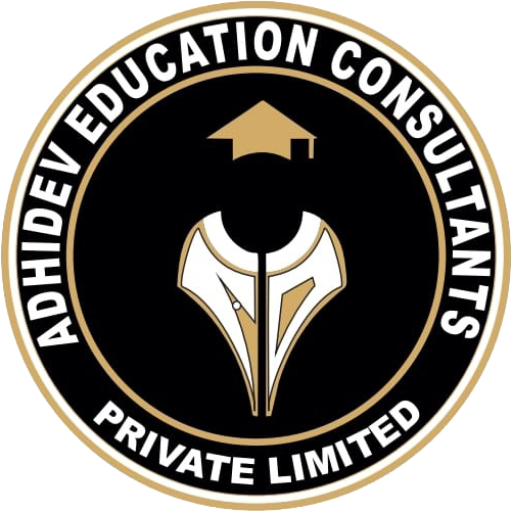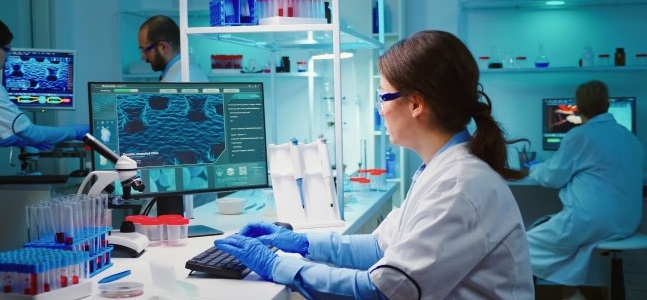Clinical skills training forms the backbone of medical education, preparing future healthcare professionals to interact with patients effectively, make sound clinical judgments, and deliver high-quality care. In an increasingly complex and evolving medical field, the need for well-trained, competent healthcare workers who possess strong clinical skills has never been more critical.
The focus on clinical skills training is especially relevant in India, where there is a need to bridge the gap between theoretical knowledge and hands-on patient care. India’s medical education system is known for producing skilled doctors, but there are concerns about the adequacy of clinical training, particularly given the disparities in resources and opportunities between urban and rural medical institutions. With the rising demand for quality healthcare, ensuring that medical students are proficient in clinical skills is vital for improving patient outcomes and the overall healthcare system.
In this blog, we will delve into three essential subtopics related to clinical skills training in medical education:
- The Role of Clinical Skills Training in Developing Competent Healthcare Professionals
- Innovative Approaches to Clinical Skills Training in India
- Challenges and Future Directions in Clinical Skills Training
The Role of Clinical Skills Training in Developing Competent Healthcare Professionals
Clinical skills training refers to the process of teaching medical students the practical aspects of patient care. These skills encompass everything from history-taking, physical examinations, and diagnostic reasoning to communication, teamwork, and ethical decision-making. The acquisition of clinical skills is essential because it enables medical students to apply theoretical knowledge in real-world healthcare settings.
Unlike textbook learning, which often focuses on facts, clinical skills training is about interaction, judgment, and decision-making. Medical students must learn to adapt to different patient conditions, navigate complex situations, and provide compassionate care. They also need to develop the ability to communicate effectively with patients, families, and colleagues. These competencies are integral to becoming a well-rounded, effective healthcare professional.
In India, medical education has traditionally placed significant emphasis on theoretical knowledge. Students spend the first few years of their education focused on basic sciences and theoretical aspects of medicine. However, when it comes time for clinical rotations or internships, many students struggle to bridge the gap between what they have learned in the classroom and the realities of patient care.
For example, a student might understand the pathophysiology of a disease but may have difficulty diagnosing it in a clinical setting due to a lack of practical exposure. This gap between theory and practice underscores the importance of early and continuous clinical skills training throughout medical school. It is only through hands-on experience that students can learn to apply their theoretical knowledge and make accurate clinical judgments.
Clinical skills training is directly linked to improved patient outcomes. A healthcare provider who has strong clinical skills is more likely to make accurate diagnoses, create effective treatment plans, and avoid medical errors. Additionally, good communication skills — another critical component of clinical training — foster trust between healthcare providers and patients, leading to better adherence to treatment plans and improved health outcomes.
In a country like India, where the doctor-patient ratio is lower than the global average, it is even more important for healthcare professionals to be highly competent. Clinical skills training ensures that doctors are well-prepared to handle the challenges of the healthcare system, provide timely care, and improve the overall quality of patient treatment.
Innovative Approaches to Clinical Skills Training in India
One of the most significant advancements in clinical skills training is the use of simulation-based learning. Medical simulations allow students to practice clinical skills in a controlled, risk-free environment using simulated patients, mannequins, and virtual reality (VR) technology. These simulations replicate real-life medical scenarios, enabling students to make clinical decisions, perform procedures, and respond to emergencies without the fear of harming actual patients.
For example, AIIMS Delhi and several other top medical institutions in India have adopted high-fidelity simulation labs to train students in various clinical procedures such as intubation, catheterization, and resuscitation. These labs are equipped with mannequins that mimic real patient responses, helping students develop their technical and decision-making skills in a realistic yet controlled setting.
Simulation-based learning has several advantages. First, it allows for repetitive practice, which is essential for skill mastery. Students can perform a procedure multiple times until they achieve proficiency. Second, it offers immediate feedback from instructors, allowing students to correct mistakes and improve their performance. Finally, simulations can be tailored to specific learning objectives, ensuring that students acquire the competencies necessary for their future careers.
Another innovative approach to clinical skills training is the introduction of clinical skills boot camps. These intensive training programs are designed to provide students with focused, hands-on experience in various clinical areas. Boot camps are usually conducted over a few days or weeks and cover essential skills such as suturing, venipuncture, CPR, and wound management.
In India, several medical schools have implemented clinical skills boot camps to better prepare their students for the challenges of clinical rotations and internships. For example, the Christian Medical College (CMC), Vellore, has a well-structured clinical skills boot camp for final-year students. This program focuses on practical skills that students will need during their internships, including patient communication, basic surgical techniques, and emergency care.
Boot camps are beneficial because they provide concentrated training in a short period, ensuring that students are well-prepared for the demands of clinical practice. They also help build confidence, which is crucial when transitioning from the classroom to the hospital setting.
With the rise of telemedicine in India, particularly during the COVID-19 pandemic, medical institutions are increasingly incorporating telemedicine into their clinical skills training programs. Telemedicine allows healthcare providers to deliver remote consultations and monitor patients through digital platforms, making it a valuable tool in today’s healthcare landscape.
Telemedicine training teaches students how to conduct remote consultations, diagnose patients from a distance, and provide follow-up care using technology. Institutions like Manipal Academy of Higher Education have developed telemedicine training modules to prepare students for the growing role of digital health in patient care. This training is especially relevant in India, where telemedicine is helping to bridge the healthcare access gap between urban and rural areas.
By integrating telemedicine into clinical skills training, medical students gain experience in both traditional and digital healthcare delivery, ensuring that they are well-equipped for the future of medicine.
Challenges and Future Directions in Clinical Skills Training
One of the primary challenges in clinical skills training in India is the disparity in resources between urban and rural medical institutions. While top-tier medical colleges in cities have access to state-of-the-art simulation labs, telemedicine platforms, and well-trained faculty, many rural medical schools lack these resources. This creates a significant gap in the quality of clinical training received by students in different parts of the country.
To address this issue, the government and private sector need to invest in improving the infrastructure of medical institutions in rural areas. This could include setting up simulation labs, providing access to telemedicine platforms, and ensuring that faculty members are trained in modern teaching methods. Additionally, partnerships between urban and rural medical schools could facilitate the sharing of resources and expertise.
Another challenge in clinical skills training is the need for well-trained faculty who can effectively teach and mentor students. Many medical schools in India struggle with a shortage of qualified instructors, particularly in rural areas. Additionally, some faculty members may lack the necessary training in simulation-based learning, telemedicine, and other modern teaching methods.
To improve the quality of clinical skills training, medical schools must invest in faculty development programs. These programs should focus on equipping instructors with the skills and knowledge needed to teach clinical skills effectively. This could include workshops on simulation-based learning, telemedicine, and the use of digital tools in medical education.
The design of medical school curricula plays a critical role in the success of clinical skills training. In India, there is a need to shift from a predominantly theoretical curriculum to one that emphasizes practical, hands-on training from the early years of medical education. While some progress has been made in recent years, particularly with the introduction of the Competency-Based Medical Education (CBME) curriculum, more work is needed to ensure that clinical skills training is integrated throughout the entire course of study.
A well-structured curriculum should include regular clinical skills assessments, opportunities for simulation-based learning, and mandatory clinical rotations in diverse healthcare settings. By prioritizing clinical skills training, medical schools can ensure that their graduates are well-prepared for the realities of patient care.
Given India’s large rural population and the shortage of healthcare providers in these areas, it is essential for medical schools to provide students with opportunities to train in rural healthcare settings. Clinical skills training in rural areas exposes students to the unique challenges of providing care in resource-limited environments, such as limited access to medical technology and specialists.
Several medical schools, including JIPMER and Kasturba Medical College, have introduced rural healthcare rotations as part of their clinical training programs. These rotations allow students to gain hands-on experience in diagnosing and treating common diseases in rural populations, as well as understanding the socioeconomic factors that influence healthcare delivery in these areas.
By expanding rural healthcare training opportunities, medical schools can help address the healthcare disparities between urban and rural populations and encourage more graduates to work in underserved areas.
Conclusion
Clinical skills training is an indispensable part of medical education, as it prepares students to navigate the complexities of patient care with competence and confidence. In India, where the healthcare system faces numerous challenges, well-trained healthcare professionals are essential for improving patient outcomes and bridging the gap between theory and practice.
Innovative approaches such as simulation-based learning, clinical skills boot camps, and telemedicine training are helping to enhance the quality of clinical skills education. However, there are still challenges to overcome, particularly in terms of resource disparities, faculty training, and curriculum design. By addressing these challenges and continuing to prioritize clinical skills training, India’s medical education system can produce healthcare professionals who are well-prepared to meet the demands of modern healthcare.













2 Comments
By: Monsur Rahman Lito
Phasellus ac consequat turpis, sit amet fermentum nulla. Donec dignissim augue nunc. Praesent bibendum erat actromi lectus molestie lobortis.
By: Monsur Rahman Lito
Phasellus ac consequat turpis, sit amet fermentum nulla. Donec dignissim augue nunc. Praesent our isto bibendum erat actromi lectus molestie lobortis.